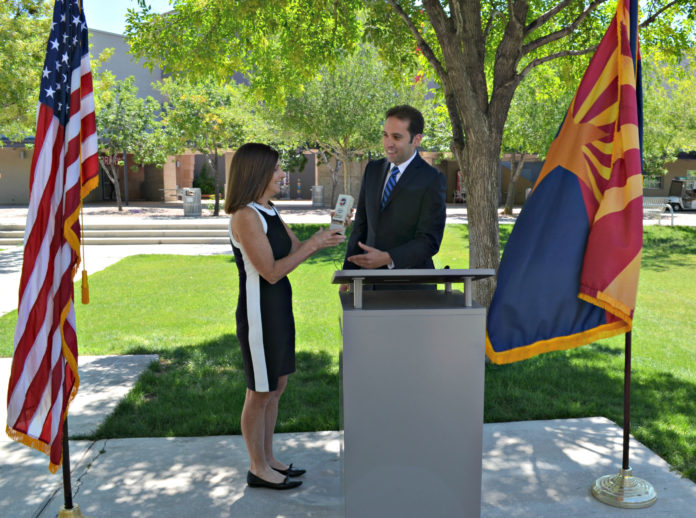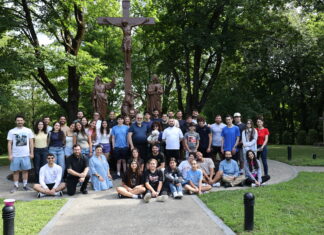GLENDALE, Calif. – Vartan Djihanian has been working for the US Chamber of Commerce to advance the cause of member businesses, and now is focusing on COVID-19 related problems. He is manager of the chamber’s western region of Congressional and public affairs, one of seven regions of the US, and his jurisdiction encompasses California, Arizona, Nevada, Utah and Hawaii. Djihanian is based in Glendale together with a colleague but, until the COVID-19 pandemic, traveled frequently for his job to meet with local chambers of commerce and business people.
Each state and local area or municipality can have its own chamber of commerce. Thus, for example, there is a Glendale Chamber of Commerce, a California chamber, and of course the US Chamber. All organizations, Djihanian said, are independent from one another. The Glendale chamber has the option of joining the higher-level chambers and pay them dues.

Djihanian serves as the liaison between the California chamber and the US chamber as well as advocating for the business community in his region. Prior to the COVID-19 pandemic, every six weeks or so he would go to Washington, D.C. to meet with lawmakers and promote the views of his constituency, which he said included lower taxes, smaller government and fewer regulations. Djihanian said, “My main goal is to advocate for the priorities of the US Chamber of Commerce to the members of Congress in my area.”
The US Chamber, with its headquarters in Washington, D.C., has 3 million members throughout the country, and is the largest business federation in America. While 95 percent of its members are firms with fewer than 10 employees, Djihanian said that some of the largest businesses in America also are included. It spends the most money on political lobbying of all groups in the United States, greatly exceeding the second-place National Association of Realtors.
With the advent of the new coronavirus, Djihanian said, “We are working extremely hard to help small businesses weather the storm as we get through the next few months.” There are around 28 million small businesses in the US which create 2/3 of all jobs, he said. To help these firms, the US Chamber was working on the Coronavirus Aid, Relief and Economic Security Act (CARES), the 2.2 trillion-dollar stimulus bill which passed in Congress a few weeks ago to help businesses of every size and most industries. There are two programs connected to this act which Djihanian and the US Chamber have been advocating for in particular.
The first one is called the Paycheck Protection Program. Djihanian said that he participates in Zoom calls with chambers of commerce around the country many times a day, including with those in Southern California, and the participants all repeat that their businesses are in dire straits right now. The program ran out of money a week ago, before some businesses even had time to submit their applications, so Djihanian and his colleagues in the US Chamber are trying to get Congressional members to replenish those funds. It is a 350-billion-dollar loan program but if used properly for payroll and certain other business expenses, it will be forgiven for the borrowers and thus turn into a grant.








